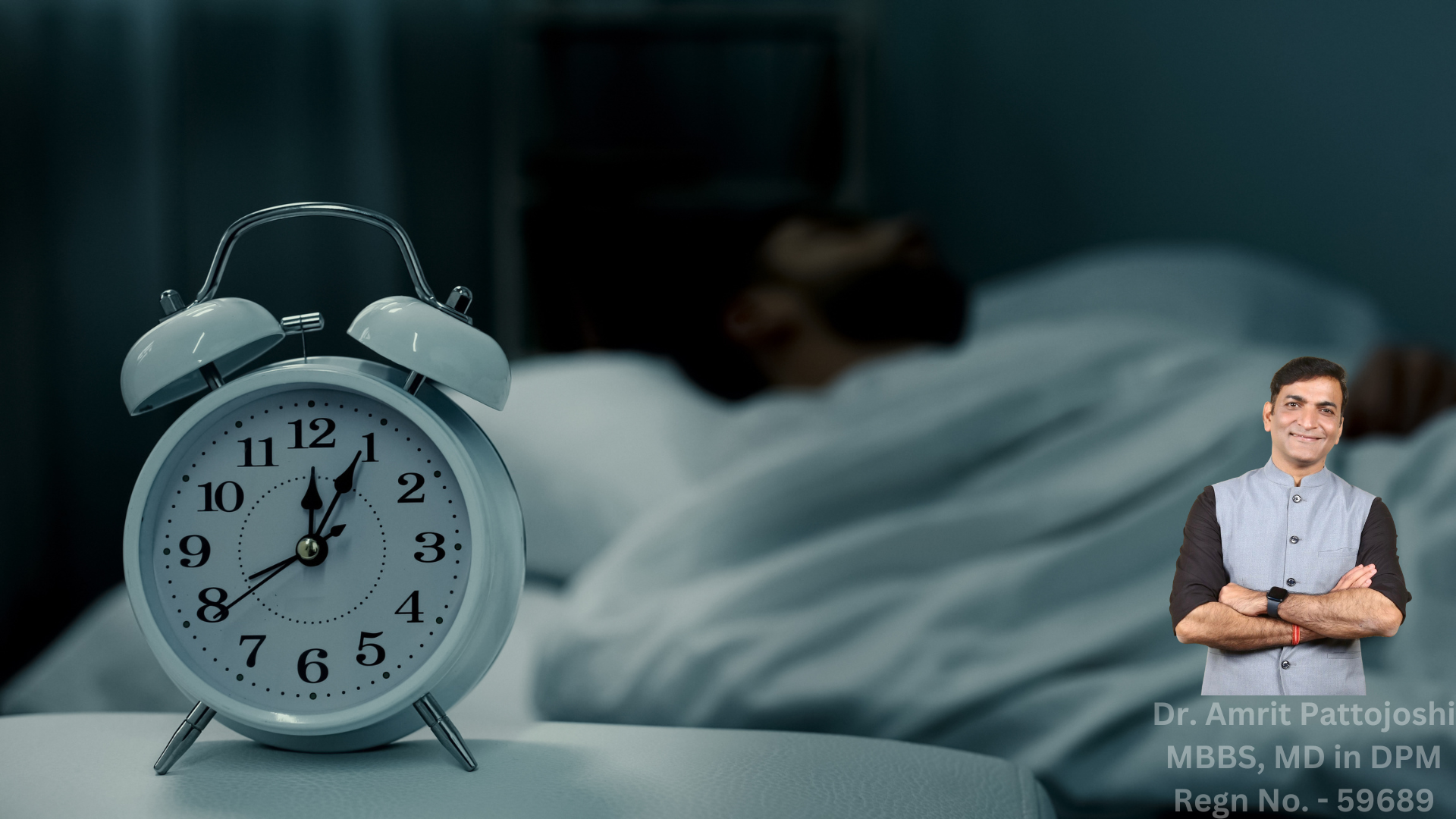Introduction:
Welcome to our article exploring the fascinating relationship between sleep and mental health. I'm Dr. Amrit Pattojoshi, and in this piece, we will delve into the intricate interplay between these two critical aspects of our well-being. Our journey will shed light on how sleep affects mental health and how mental health, in turn, influences our sleep patterns.
The Importance of Quality Sleep:
Sleep is not just a time of rest; it is a restorative process crucial for optimal brain function and overall health. During sleep, the brain goes through various stages that aid memory consolidation, emotional regulation, and cognitive processing. Insufficient or poor-quality sleep can lead to cognitive impairments, mood disturbances, and increased vulnerability to mental health issues.
Impact on Mental Health:
The bidirectional relationship between sleep and mental health is evident through numerous studies. Sleep disturbances, such as insomnia or sleep apnea, are known to be risk factors for mental health disorders like anxiety and depression. Sleep deprivation can exacerbate existing mental health conditions and may even trigger psychotic episodes in susceptible individuals.
The Role of Circadian Rhythms:
Our internal body clock, known as the circadian rhythm, plays a crucial role in regulating our sleep-wake cycle. Disruptions in this rhythm can lead to irregular sleep patterns, affecting our mood, cognitive function, and overall mental health. For instance, irregular sleep-wake schedules due to shift work have been associated with increased rates of mood disorders.
Stress and Sleep:
Stress is a common part of modern life, and its impact on sleep and mental health is undeniable. High-stress levels can lead to sleep disturbances, while inadequate sleep can, in turn, worsen one's ability to cope with stress. It becomes a vicious cycle that significantly affects mental well-being.
Sleep Disorders and Mental Health:
Certain sleep disorders, such as insomnia, sleep-related breathing disorders, and parasomnias, have intricate connections with mental health disorders. For instance, sleep paralysis, a type of parasomnia, is linked to a higher risk of anxiety and panic disorders. Understanding and addressing these sleep disorders are essential for managing and treating associated mental health conditions effectively.
Treating Sleep and Mental Health Issues:
Recognizing the bidirectional relationship between sleep and mental health can open new avenues for comprehensive treatments. In some cases, improving sleep quality can help alleviate symptoms of certain mental health conditions. Similarly, managing mental health disorders can lead to better sleep patterns. Cognitive-behavioral therapy for insomnia (CBT-I) is a prime example of an effective treatment approach that addresses both sleep and mental health.
Conclusion:
In conclusion, the relationship between sleep and mental health is deeply intertwined. Ensuring adequate, restful sleep is not just essential for physical health but also for maintaining emotional balance and cognitive function. As a medical professional, I encourage everyone to prioritize sleep hygiene and seek professional help if experiencing persistent sleep issues or mental health concerns. By acknowledging and addressing the bidirectional impact of sleep and mental health, we can take significant steps toward overall well-being and a healthier, happier life.
